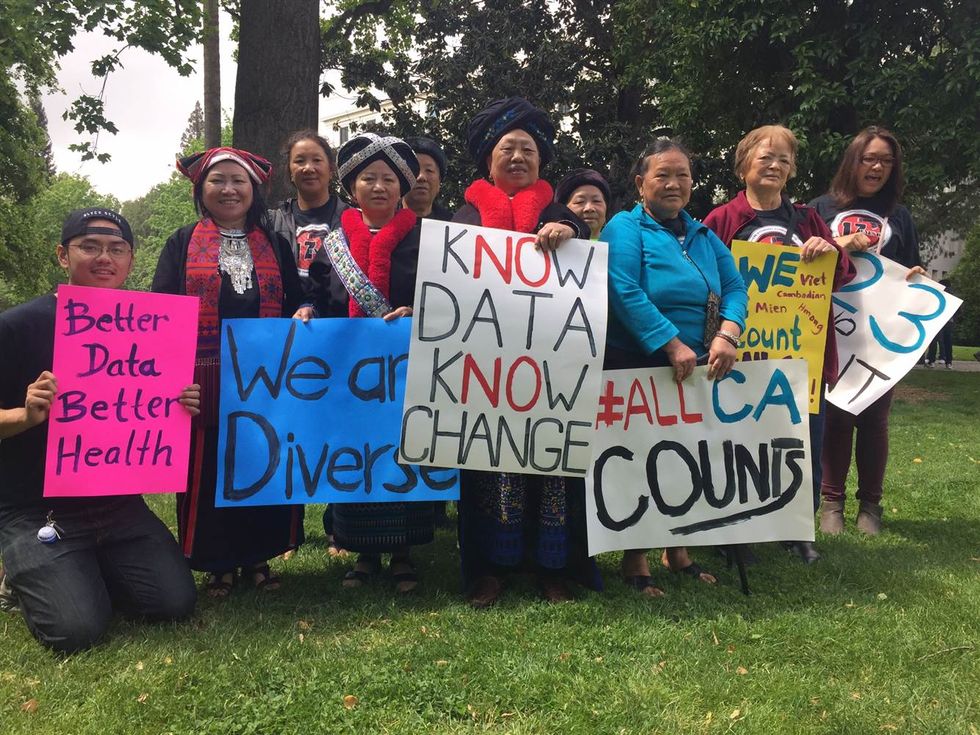This is part 5 of an ongoing series on California Assembly Bill 1726. To access parts one through, you can go to the main page.
“Divide and Conquer”
In 1849, the first Chinese immigrants came to California in hopes of newfound wealth in the wake of the California Gold Rush. By 1882, they were outlawed from the country. President Chester A. Arthur signed the Chinese Exclusion Act that year, effectively halting Chinese immigration to the United States. The law became permanent in 1902, before it was repealed by the Magnuson Act in 1943. Just a year before Magnuson was signed, thousands of Japanese Americans were forcefully interned in camps across the country as a result of Executive Order 9066. That makes a total of two exclusionary acts towards Asian Americans in the span of less than half a century.
For this century, Frank Xu did not want to see another such act pass. Xu serves as the president of San Diego Asian Americans for Equality (SDAAFE). SDAAFE was one of at least 20 API community organizations that actively opposed AB-1726 on the grounds of exclusion and racism.
According to its website, SDAAFE claims to be the largest nonpartisan Asian American political action committee (PAC) in San Diego, with over 1,700 members. It seeks to advocate for APIs by “promoting Asian American values” and “defending … community interests and mobilizing Asian American community on issues of concern.” SDAAFE also opposed California Senate Constitutional Amendment 5, more commonly known as SCA5. SCA5, a 2014 ballot initiative, sought to overturn California Proposition 209. Prop 209, which California voters approved by nine points in the 1996 general election, officially outlawed public institutions from discriminating on the basis of sex, race or ethnicity. The law effectively ended affirmative action practices in the UC and CSU systems. These universities could no longer factor an applicant’s race into their admissions criteria. It has become a flashpoint for a debate about university admissions policies ever since. On those same grounds, SDAAFE and its two dozen partners took the same position in opposing AB-1726.
“There is no scientific proof saying that different race of people born and raised in the same state would have different decease or have different educational outcome,” said Xu.
The opposition saw AB-1726 as a backdoor way of reinstating affirmative action policies. This focus on race turned off Xu and other opponents, calling it divisive.
SDAAFE was one of the organizations who openly protested the bill along with California Senator Bob Huff at a rally in August. Huff, one of the Assembly’s most vocal critics of the bill, garnered criticism from several Asian American groups for his views on the bill. He slammed AB-1726, comparing it to the Chinese Exclusionary Act and Japanese American internment in World War II.
“Although the author’s intent for further information appears to be sincere, data just like this has been used in the past to hurt API communities,” Huff said about Bonta in a press release.
Other web pages were equally as dismissive of the bill and wary of its division.
A petition on Change.org titled “Vote NO on AB-1726,” listed a total of 15,222 signatures. The petition accused the bill as being racist, in favor of affirmative action and unequal division. “AB-1726 is clearly divisive and unfair,” the petition reads. It claims the bill doesn’t have any provisions for groups other than Asian Americans and Pacific Islanders, confuses ethnicity with national origin and is unable to be realistically implemented.
“From the opposition too is that they feel like suddenly people want to disaggregate AAPI data and not anyone else’s,” Yang responded. “But the reality is that the request is coming from within the community. I think the Latino and black community haven’t made that request, but it’s because they probably feel like it’s not something that they need right now.”
“The bill has nothing to do with race-based affirmative action,” Chang claimed. “It simply sheds light on potential issues that the community faces and how that data would eventually be used in the future.”
Xu, however, isn’t buying the argument. He cites a supporter’s conversation with Bonta about the low percentage of Filipino Americans being admitted into California colleges every year compared to other Asian American groups.
“That's the proof how he tries to divide and conquer,” Xu said. “The similar tactic could be used anywhere to divide subgroups. However, the people should be united instead of divided.”The sixth and final part of this series will come next week.
















